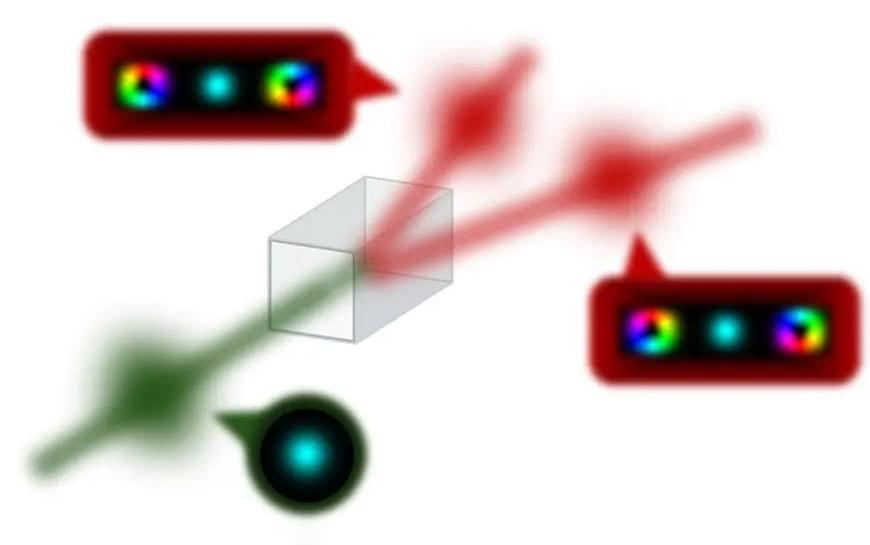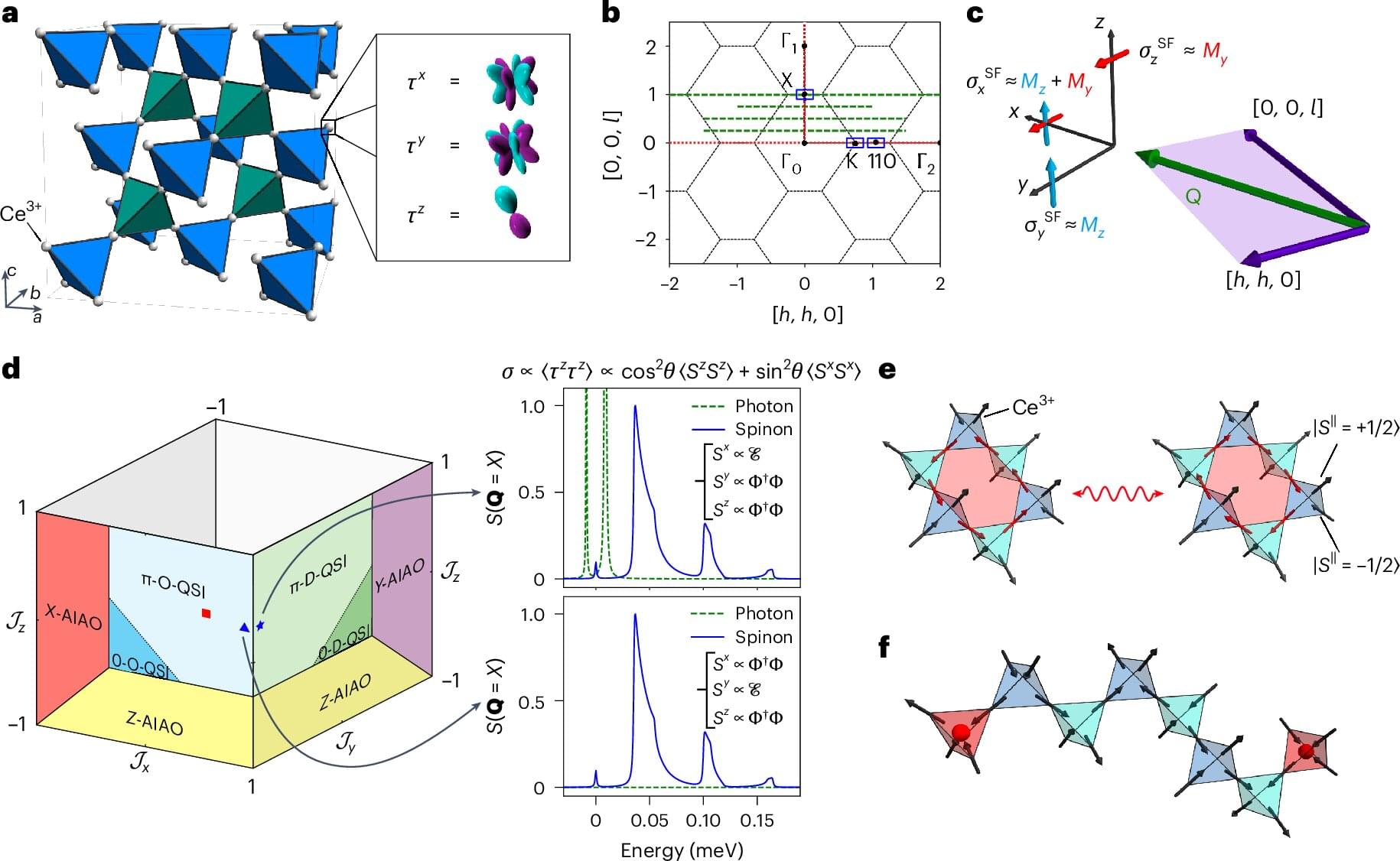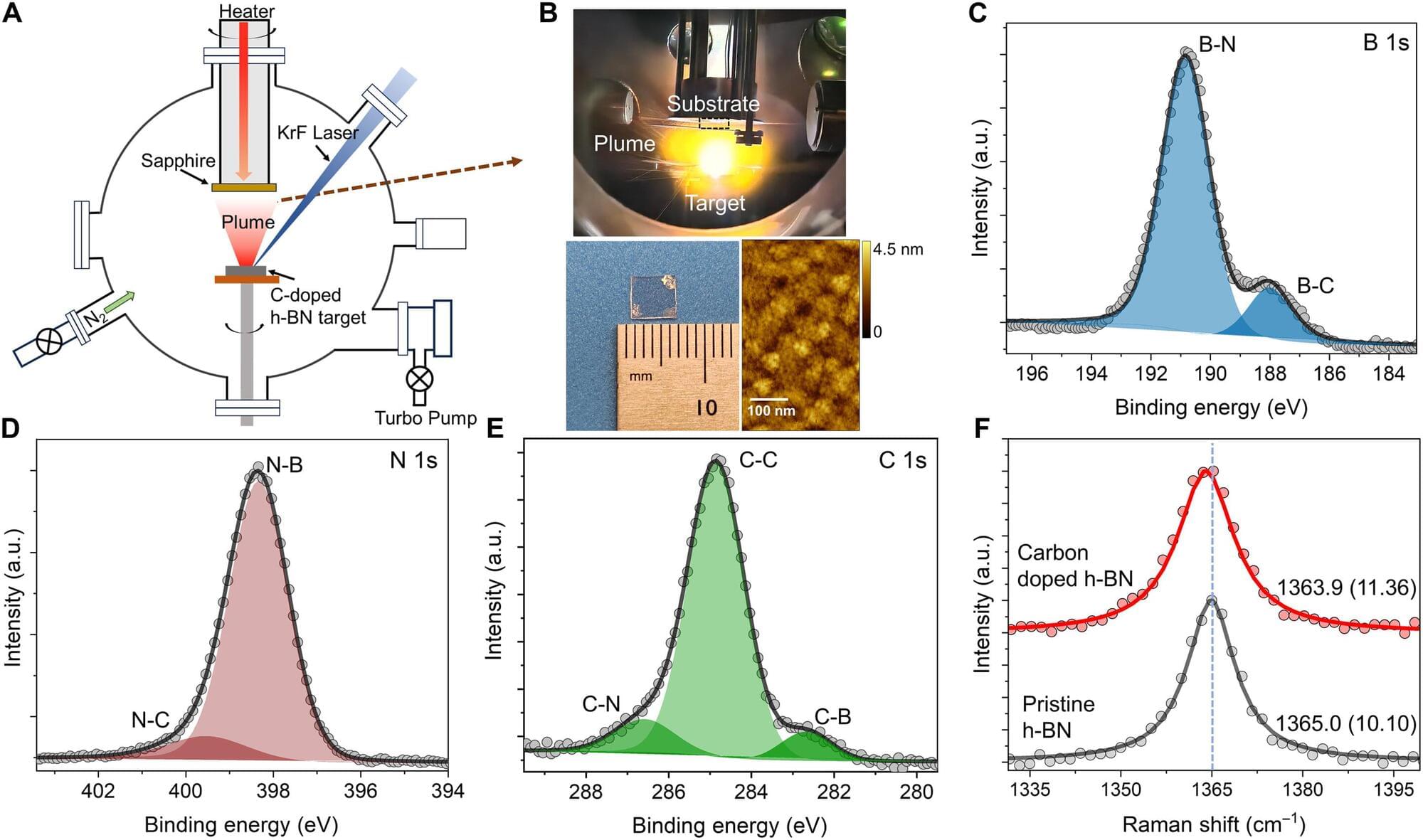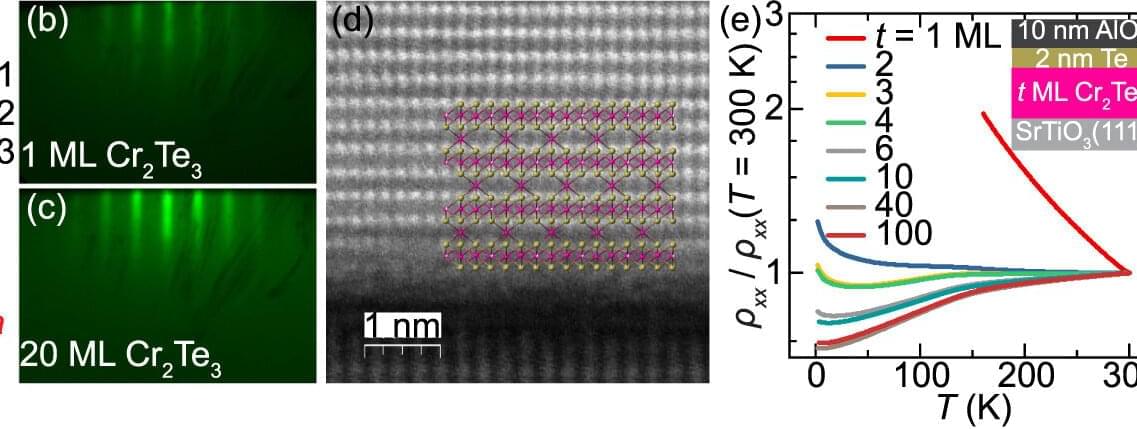The world’s first quantum computer has entered orbit on a SpaceX rocket, promising energy-efficient edge computing from 550 km above Earth.




Researchers at Tampere University and their collaborators from Germany and India have experimentally confirmed that angular momentum is conserved when a single photon is converted into a pair – validating a key principle of physics at the quantum level for the first time. This breakthrough opens new possibilities for creating complex quantum states useful in computing, communication, and sensing.
Conservation laws are the heart of our natural scientific understanding as they govern which processes are allowed or forbidden. A simple example is that of colliding billiard balls, where the motion – and with it, their linear momentum – is transferred from one ball to another. A similar conservation rule also exists for rotating objects, which have angular momentum. Interestingly, light can also have an angular momentum, e.g., orbital angular momentum (OAM), which is connected to the light’s spatial structure.
In the quantum realm, this implies that single particles of light, so-called photons, have well-defined quanta of OAM, which need to be conserved in light-matter interactions. In a recent study in Physical Review Letters, researchers from Tampere University and their collaborators, have now pushed the test of these conservation laws to absolute quantum limit. They explore if the conservation of OAM quanta holds when a single photon is split into a photon pair.

Quantum computing just got a significant boost thanks to researchers at the University of Osaka, who developed a much more efficient way to create “magic states”—a key component for fault-tolerant quantum computers. By pioneering a low-level, or “level-zero,” distillation method, they dramatically reduced the number of qubits and computational resources needed, overcoming one of the biggest obstacles: quantum noise. This innovation could accelerate the arrival of powerful quantum machines capable of revolutionizing industries from finance to biotech.


An international team of scientists led by Rice University’s Pengcheng Dai has confirmed the existence of emergent photons and fractionalized spin excitations in a rare quantum spin liquid. Published in Nature Physics on June 19, their findings identify the crystalline compound cerium zirconium oxide (Ce₂Zr₂O₇) as a clear 3D realization of this exotic state of matter.
Long a subject of theoretical intrigue, quantum spin liquids offer promise for revolutionary technologies, including quantum computing and dissipationless energy transmission. By refusing to conform to traditional magnetic behavior, these materials realize emergent quantum electrodynamics via highly quantum-entangled motions of magnetic moments at temperatures near absolute zero.
“We’ve answered a major open question by directly detecting these excitations,” said Dai, the Sam and Helen Worden Professor of Physics and Astronomy. “This confirms that Ce₂Zr₂O₇ behaves as a true quantum spin ice, a special class of quantum spin liquids in three dimensions.”

Scientists across the world are working to make quantum technologies viable at scale—an achievement that requires a reliable way to generate qubits, or quantum bits, which are the fundamental units of information in quantum computing.
The task has so far remained elusive, but one of the materials that has garnered a lot of attention as a possible qubit platform is hexagonal boron nitride (h-BN), a 2D material that can host solid-state single-photon emitters (SPEs). Like the name indicates, SPEs are atomic structures in solid materials that can produce individual photons.
In a new study published in Science Advances, researchers at Rice University and collaborators at Oak Ridge National Laboratory and the University of Technology, Sydney report the first demonstration of low noise, room-temperature quantum emitters in h-BN made through a scalable growth technique.

A team of international researchers led by the University of Ottawa has made a breakthrough in the development of ultra-thin magnets—a discovery that could lead to faster, more energy-efficient electronics, quantum computers, and advanced communication systems.
The study, led by Hang Chi, Canada Research Chair in Quantum Electronic Devices and Circuits, & Assistant Professor of Physics at uOttawa’s Faculty of Science, demonstrates a new way to strengthen magnetism in materials just a few atoms thick. This is a critical step toward making these tiny magnets practical for real-world technologies.
The paper is published in the journal Reports on Progress in Physics.
Let’s dive in and look at TPU internals from the bottom up.
I’ve been working with TPUs a lot recently and it’s fun to see how they had such different design philosophies compared to GPUs.
The main strongpoint for TPUs is in their scalability. This is achieved through a co-design of both the hardware side (e.g. energy efficiency and modularity) and the software side (e.g. XLA compiler).
To give a brief tldr on TPUs, it’s Google’s ASIC that focuses on two factors: extreme matmul throughput + energy efficiency.

Using advanced computational modelling, a research team led by the University of Oxford, working in partnership with the Instituto Superior Técnico in the University of Lisbon, has achieved the first-ever real-time, three-dimensional simulations of how intense laser beams alter the ‘quantum vacuum’ — a state once assumed to be empty, but which quantum physics predicts is full of virtual electron-positron pairs.